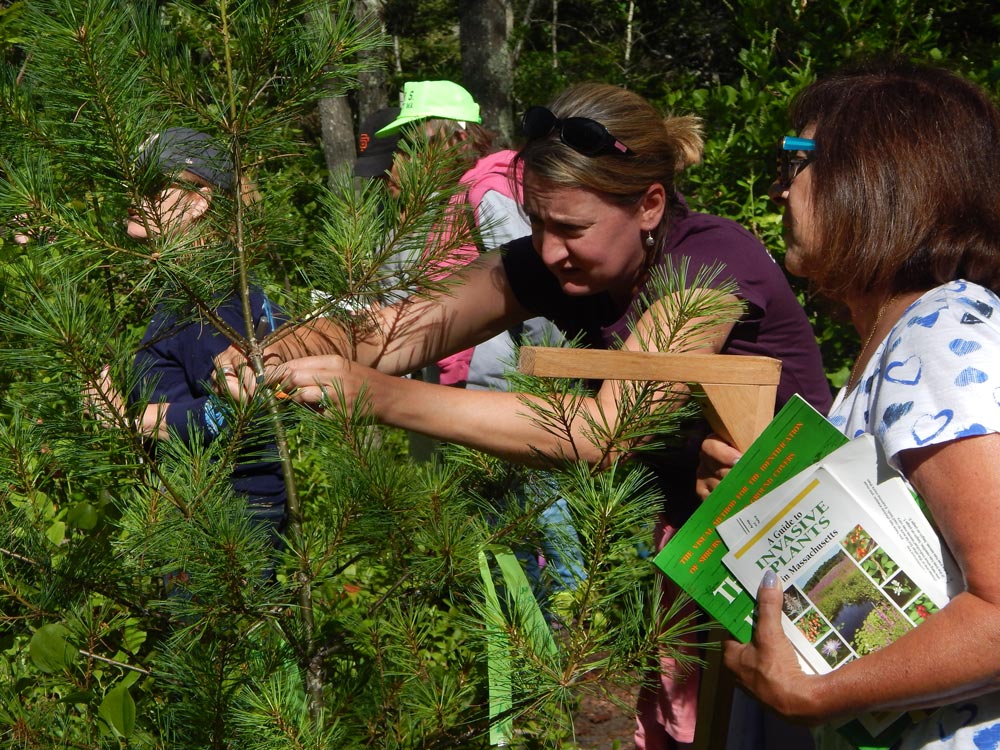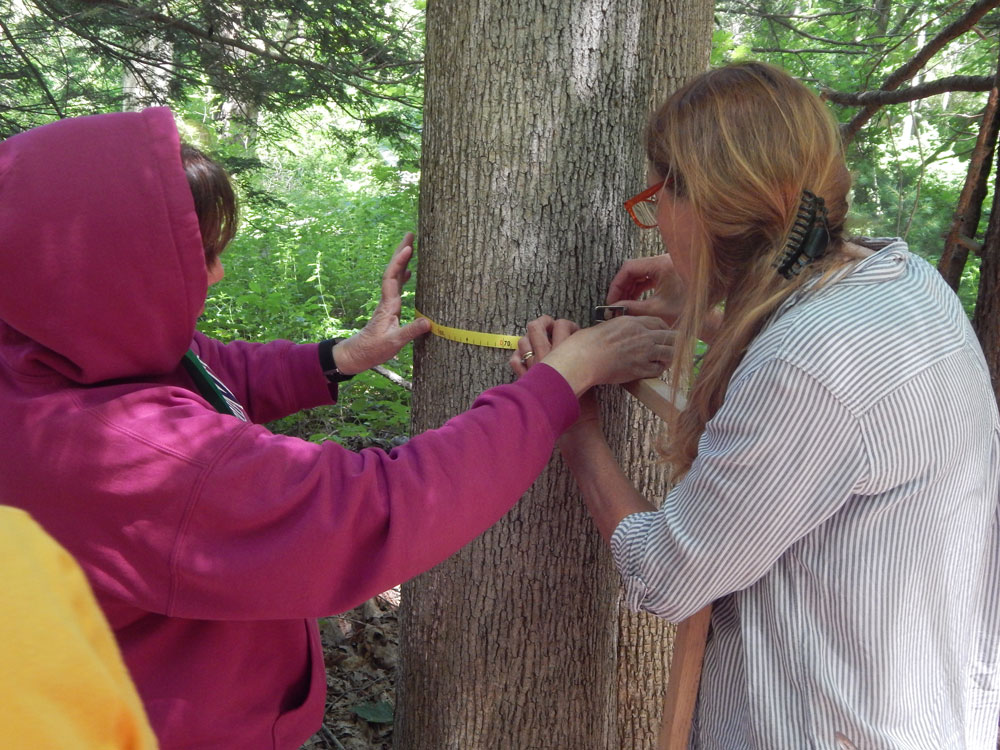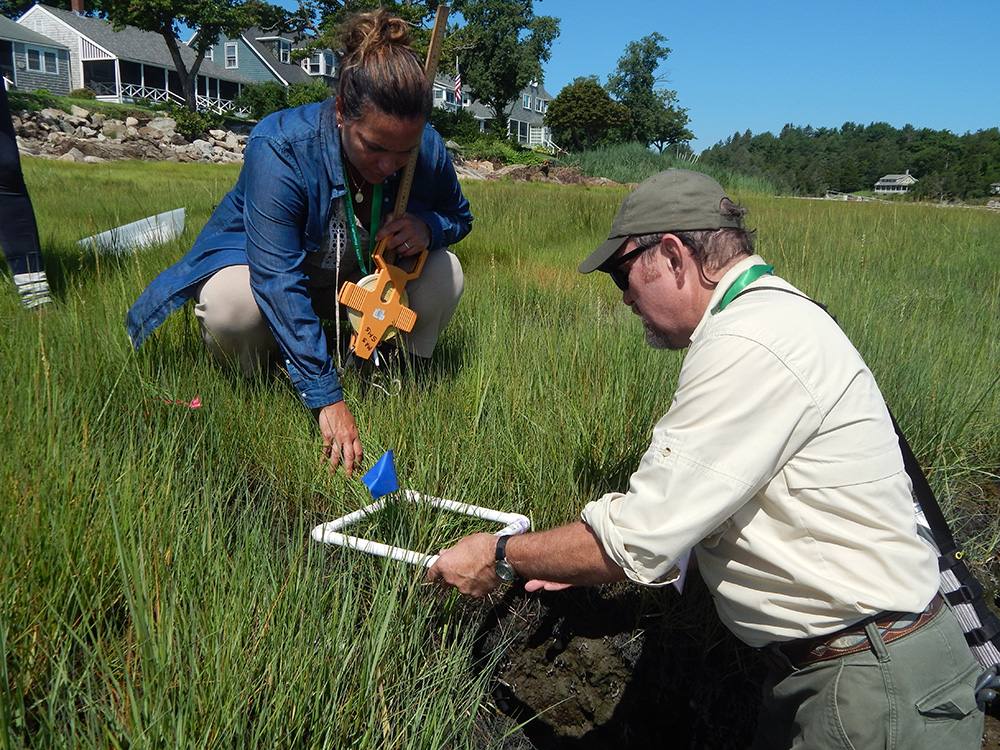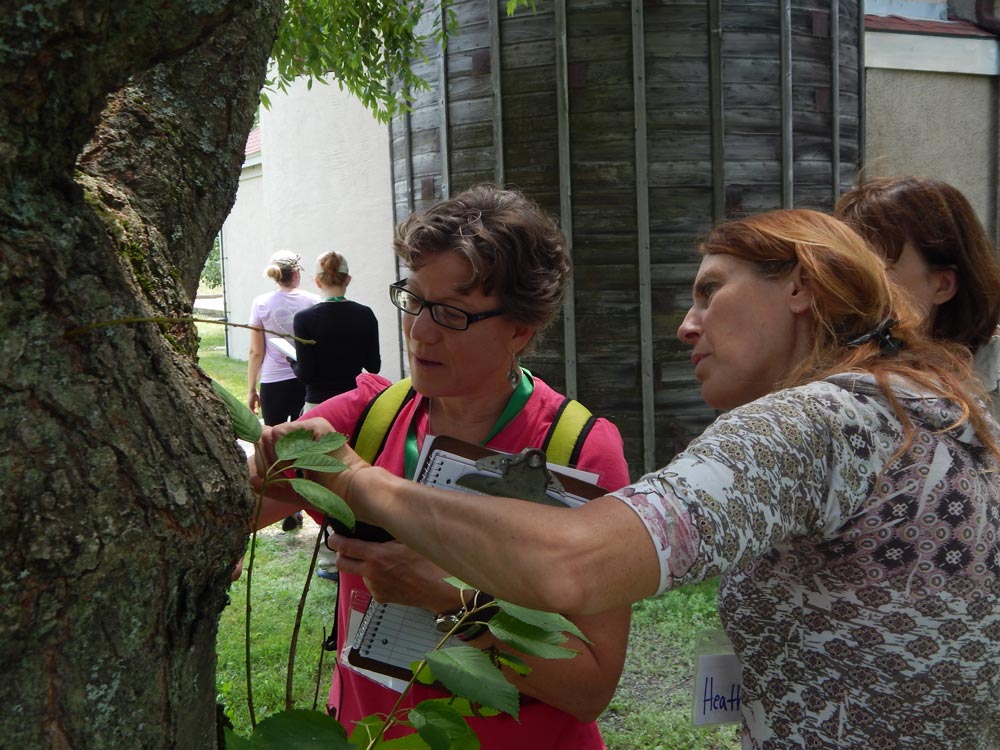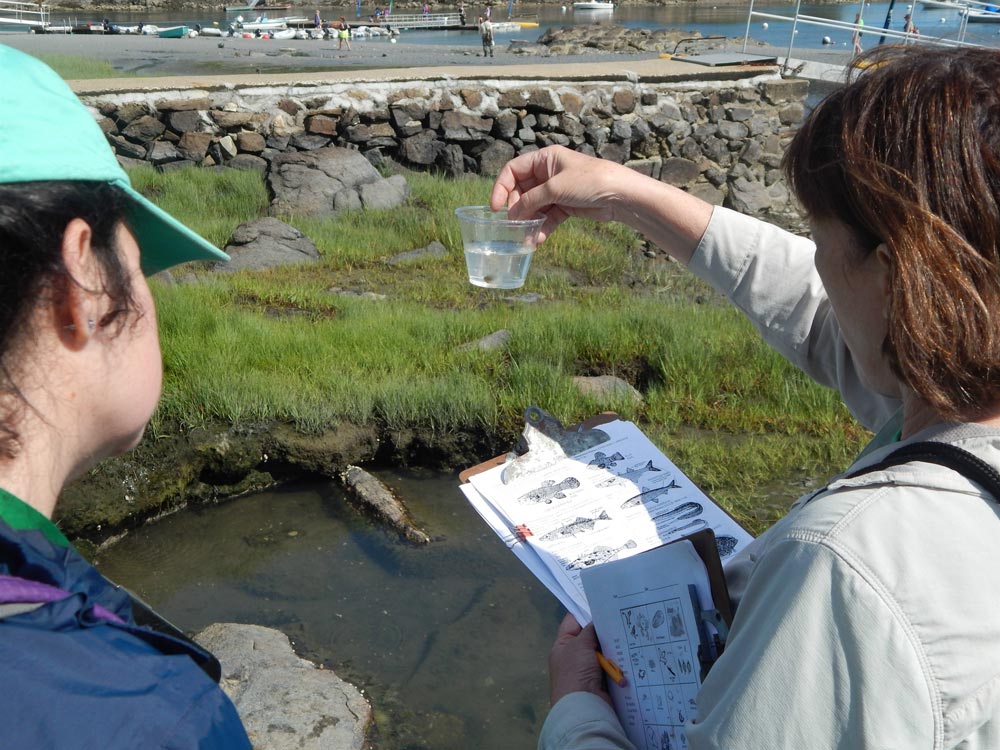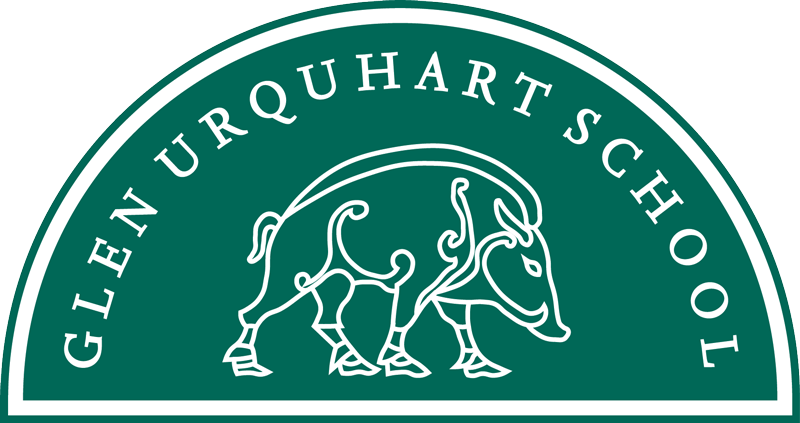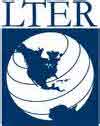North Shore Region
One-Week Institute for Grades 3-8 Educators
Investigating Ecosystems and Assessing Human Impact
How are humans helping or harming local habitats? During this summer’s North Shore Region Institute, teachers explored ways to investigate this question in their own schoolyards and in the world around them. Participants supported their students’ active involvement in achieving a positive impact through citizen-science projects that will have them collecting real, local data that can be used by scientists. We learned about Long Term Ecological Research being conducted in Massachusetts that students can be a part of, such as the “Buds, Leaves, and Global Warming” investigations supported by Harvard Forest.
How can organisms help us assess the health of local ecosystems? We found out by investigating bio-indicators of water and air quality such as macroinvertebrates and lichens. How can we ensure that our local habitats are healthy? Teachers learned how their schoolyards can become a “Monarch Watch certified way-station”.
Participants received a copy of “Save Our Stream!” written by scientists involved in local research. We ventured into the field with local scientists and used a variety of tools and techniques to collect, analyze and communicate field data. We also learned how to use data collection and analysis to engage students and introduce them to scientific research. Teachers discovered resources available from Kestrel Education Adventures and Harvard Forest. Each day was filled with field studies, “hands-on, minds-on” investigations and discussions aimed to highlight the resiliency of our local habitats.
Partners: Mass Audubon’s Endicott Wildlife Sanctuary (Lead Institution), Glen Urquhart School, Plum Island Ecosystems LTER

